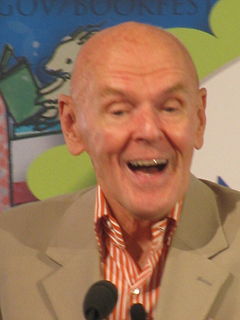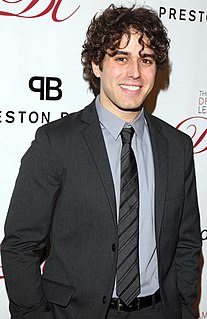A Quote by Robert E. Lee
The time is not come for impartial history. If the truth were told just now, it would not be credited.
Related Quotes
September 11 We thought we'd outdistanced history Told our children it was nowhere near; Even when history struck Columbine, It didn't happen here. We took down the maps in the classroom, And when they were safely furled, We told the young what they wanted to hear, That they were immune from a menacing world. But history isn't a folded-up map, Or an unread textbook tome; Now we know history's a fireman's child Waiting at home alone.
The thing that most haunted me that day, however...was the fact that these things had - apparently - actually occurred...For all his attention to my historical education, my father had neglected to tell me this: history's terrible moments were real. I understand now, decades later, that he could never have told me. Only history itself can convince you of such a truth. And once you've seen that truth - really seen it - you can't look away.
History can come in handy. If you were born yesterday, with no knowledge of the past, you might easily accept whatever the government tells you. But knowing a bit of history--while it would not absolutely prove the government was lying in a given instance--might make you skeptical, lead you to ask questions, make it more likely that you would find out the truth.
I must say a few words about memory. It is full of holes. If you were to lay it out upon a table, it would resemble a scrap of lace. I am a lover of history . . . [but] history has one flaw. It is a subjective art, no less so than poetry or music. . . . The historian writes a truth. The memoirist writes a truth. The novelist writes a truth. And so on. My mother, we both know, wrote a truth in The 19th Wife– a truth that corresponded to her memory and desires. It is not the truth, certainly not. But a truth, yes . . . Her book is a fact. It remains so, even if it is snowflaked with holes.
The Town Hall Pub on a Wednesday night was just regulars anyway, so we could play whatever. Worst case scenario, it would be the same seven people who were always at the bar getting drunk, and they would be there for us. But we just told our friends and family, and they came out to support us. Then they told their friends, who told their friends, who told their friends. It was a full-on event.
If democracy were to be given any meaning, if it were to go beyond the limits of capitalism and nationalism, this would not come, if history were any guide, from the top. It would come through citizen's movements, educating, organizing, agitating, striking, boycotting, demonstrating, threatening those in power with disruption of the stability they needed.
How forthright does the audience want the broadcasters to be? Because when you tell your truth, there's a lot of anger that comes out. I think it's a good question to ask TV people [executives] too. How much truth do they want to be told? How much truth does the league want told? Because the truth isn't just a positive truth. If you're going to tell the truth, you would be telling a lot of positive and some negative.
It seemed from the media that we were being told that all Haitians had AIDS. At the time, I had just come from Haiti. I was twelve years old, and the building I was living in had primarily Haitians. A lot of people got fired from their jobs. At school, sometimes in gym class, we'd be separated because teachers were worried about what would happen if we bled. So there was really this intense discrimination.




































